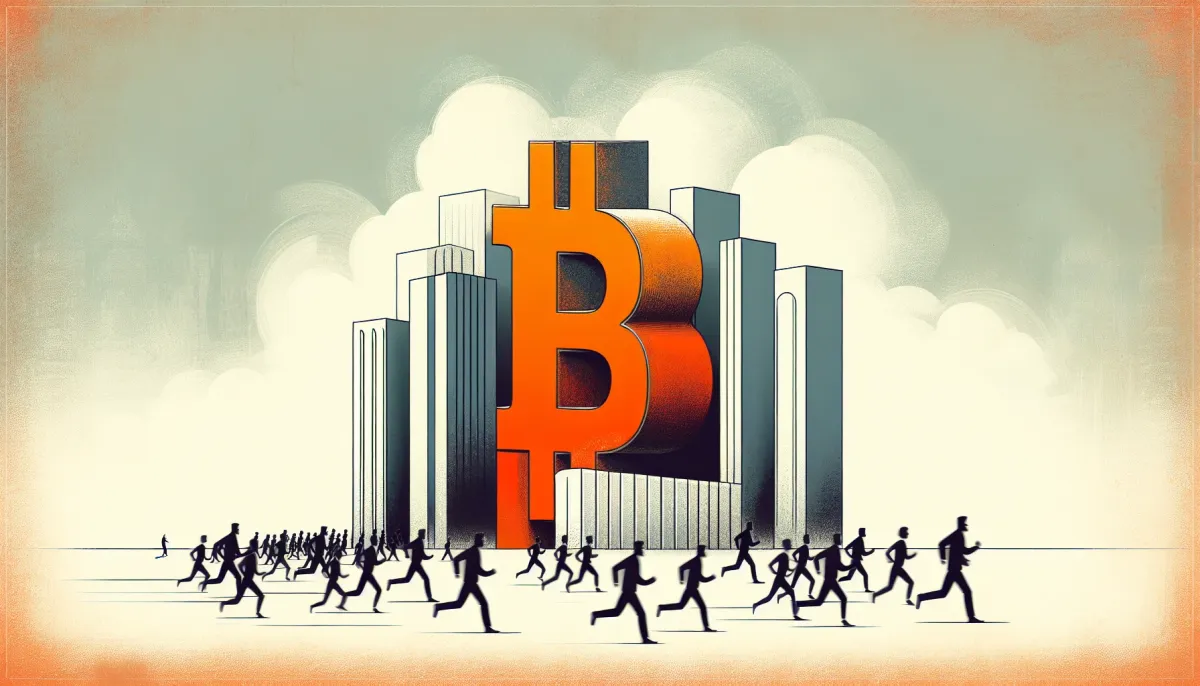Bitcoin Faces Potential "Bank Run" Risk, Warns Cyber Capital's Justin Bons

Bitcoin (BTC) might be facing a serious risk of a "bank run," according to Justin Bons, the founder and CIO of Cyber Capital. A bank run happens when customers pull their money out of a bank because they fear it could go under.
In a detailed thread on social media, Bons pointed out some major issues with Bitcoin's transaction capacity, self-custody model, and network security. He believes these problems could lead to a crisis that destabilizes the network and hurts investors.
Bons focused on Bitcoin’s limited transaction processing ability, which he estimates at about seven transactions per second (TPS). He used data from Glassnode and Bitcoin’s code to make his case. With 33 million on-chain users, he argues that a mass panic could create a bottleneck.
“Under ideal conditions, the queue could stretch to 1.82 months. But in reality, transactions would get stuck and might even be dropped. This would make it really hard for smaller users to exit unless they pay huge fees,” Bons explained.
He warned that this limitation could trigger a “death spiral.” If prices crash, miners might shut down, slowing the network even more. This could lead to longer wait times and even more panic, creating a vicious cycle of falling prices and hash rates.
Bons also claimed that Bitcoin’s transaction capacity isn’t enough for real-world use. He compared Bitcoin’s 7 TPS to Visa’s 5,000 TPS, or even other cryptocurrencies that exceed 10,000 TPS without losing decentralization.
“There are literally no use cases that can be supported by 7 TPS. Mass self-custody of BTC is a risky idea. The only way for BTC to scale is through centralized custodians and banks, which goes against its idea of being ‘freedom money’,” he stated.
He raised concerns about Bitcoin’s long-term sustainability, pointing to its shrinking security budget. He thinks this is a crucial issue that could worsen the risks he discussed. Bons also noted that Bitcoin has strayed from its original vision as “peer-to-peer (P2P) electronic cash.” He expressed disappointment that the network has become more of a speculative asset than a practical currency.
His comments sparked a lively debate on X (formerly Twitter). Patrick Flanagan, a tech expert, dismissed Bons’ claims. “This is pure fantasy. If this were going to happen, it would have happened years ago,” Flanagan argued.
Bons countered that the risk grows as the number of users increases. Even a small fraction of users leaving could set off a run. The larger the network gets, the more serious the problem becomes.
Other users pointed out alternatives, like trading wrapped Bitcoin (WBTC) on Ethereum, which avoids Bitcoin’s base layer limitations. Bons acknowledged this but noted that wrapped BTC users could exit quickly while on-chain users would be stuck, worsening the sell-off. The conversation also touched on Bitcoin’s self-custody model.
“Self-custody advocates should pay attention to this. Just a little bit of fear, uncertainty, and doubt (FUD) can trap everyone’s money,” said Joel Venezuela from DashPay.
Bons responded, admitting he finds himself in a tough spot as a cypherpunk and self-custody supporter. Another user compared Bitcoin to gold, asking how long it would take to liquidate global gold holdings. Bons replied that while gold has limits, its theoretical transaction capacity far exceeds Bitcoin’s, making it less vulnerable to bottlenecks.
Critics of Bons’ analysis argue that Bitcoin has weathered similar concerns in the past without collapsing. However, his warning adds to a growing chorus calling for a reevaluation of Bitcoin’s scalability and usability.
Despite his grim outlook for Bitcoin, Bons remains hopeful about the broader cryptocurrency space. “There’s still a lot of hope for cryptocurrency as a whole,” he concluded, suggesting that Bitcoin’s original ethos is now thriving in other blockchain projects.
As Bitcoin stays the dominant cryptocurrency, discussions about its scalability and resilience continue. Bons’ warning serves as a reminder of the challenges Bitcoin faces in achieving broader adoption in a changing financial landscape. Meanwhile, Galaxy CEO Mike Novogratz shares similar concerns about a Bitcoin reserve in the U.S. “I think it would be smart for the United States to take the Bitcoin they have and maybe add some to it... I don’t think the dollar needs anything to back it up,” Novogratz claimed.
